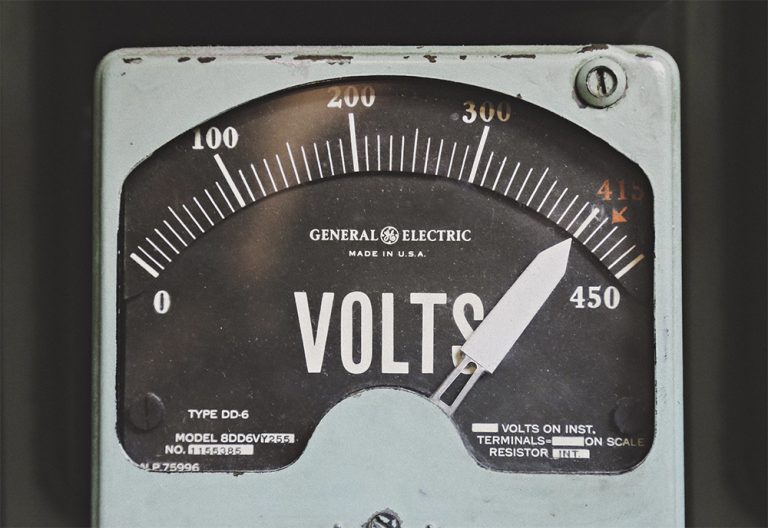With the emergence of high-end electric cars from the likes of Tesla, going green is finally becoming fashionable in the automotive world – and vans have been quick to get in on the action. On the surface, it’s easy to see why. Reduced carbon emissions help to lower tax, are far more environmentally friendly, and can see you gain a reduction on your insurance premium too. But with lingering concerns over mileage, the availability of charging points and the ability of electric-powered motors to transport bulky loads, are electric vans really worthy of all the hype? Is it good to go green? So many people are keen to get behind the wheel of an electric motor, to do their bit for the environment, and van owners are no different. Yet can vans truly offer the same benefits that cars currently do? The simply answer is yes. Considerable thought and research has gone into the design and assembly of electric vans. With many different manufacturers all keen to develop the most outstanding option on the market, competition has driven innovation faster than anyone anticipated. All of the previous concerns about the viability of electric vans have vanished. Instead, a wealth of models and specifications now await any van driver who chooses to take the leap. Mileage and range Electric vans require a greater range than most electric cars, because their main function is as transportation vehicles – carrying goods from one place to another, often cross-country and along motorways for extended periods of time. While early models could only manage 60-80 miles, newer versions are now capable of up to 120 miles between charges. With so many motorway service stations offering electric charging points, you should never be without power again. Cost Most new technologies cost substantially more than their older counterparts, which is hardly surprising, but help is at hand for environmentally-minded van drivers. Brand new, straight-off-the-forecourt prices are considerably higher than for their fuel-driven counterparts, but there are government grants of up to £8,000 to support and encourage the purchase of electric vans. For more information, read up on the government plug-in van grant to find out if you’re eligible. In addition to funding for your new wheels, running costs are where you’ll make the biggest savings. Electricity in general is cheaper than gas, with some estimates reckoning that recharging your van could cost half as much as refilling the tank. Equally, thanks to the innovative braking system used in electric cars (making use of the engine instead of a clutch), wear and tear costs on electric vehicles are also reduced. Premiums and Charges Electric vans have the benefit of saving you money both on your insurance premium and also helping you avoid congestion charges in the UK’s biggest cities. If you’d like to get an idea of how much you can save on your insurance, then you can use one of many comparison websites which specialise in van cover, such as https://www.comparevaninsurance.com. They’ll give you quotes from a range of industry providers based either on details of a van you already own or the make and model of a van you’d like to buy. In terms of avoiding charges, in October 2018 the ULEZ (Ultra Low Emission Zone) came into partial effect in London’s city centre. It works in a similar way to the congestion charge, but is tougher – especially on older vehicles – whilst electric vans can avoid the charge altogether. If you’re not sure whether your current van will be affected, check out Parker’s handy guide to New Charges for Vehicles in London. Feel-Good Factor Apart from anything else, going green gives you a good feeling inside. Knowing that with every mile you drive you’re doing your bit to keep the environment safe, you can hold your head high. Even when recharging, you can make use of renewable energy sources to keep your carbon footprint as low as possible. What are the disadvantages? Of course, not everything is straightforward. Going green means you’ll need to be able to charge your van overnight – which means you’ll also need a driveway within a short distance of your house. Charging while you’re on the road can be tricky, as the infrastructure for electric vehicles is only in its infancy. It most likely means you’ll need to plan in advance what your route will be, so you can research any charging points it takes you past. Weight is an issue, for the simple but unavoidable reason that electric models weigh more than fuel-based vehicles, due to the additional weight of the technology. This is fine if you only use your van for carrying work tools, but if you regularly transport goods then you’ll have to ensure the extra load doesn’t take you over your legal weight capacity. Finally, the basic truth is that electric vans cost more. Even with the incentives offered by the Government, the upfront costs are still considerably more than they would be for a standard diesel model. So the choice will have to come down to you – do you need an electric van to tie in with your company image? Are you passionate enough about saving the planet to invest that extra money into your vehicle? Or are electric vans something you’ll consider in a few years’ time, when the technology, production and infrastructure is in place to make it a more cost-effective and appealing option? After all, it’s not a question of if, just when.













